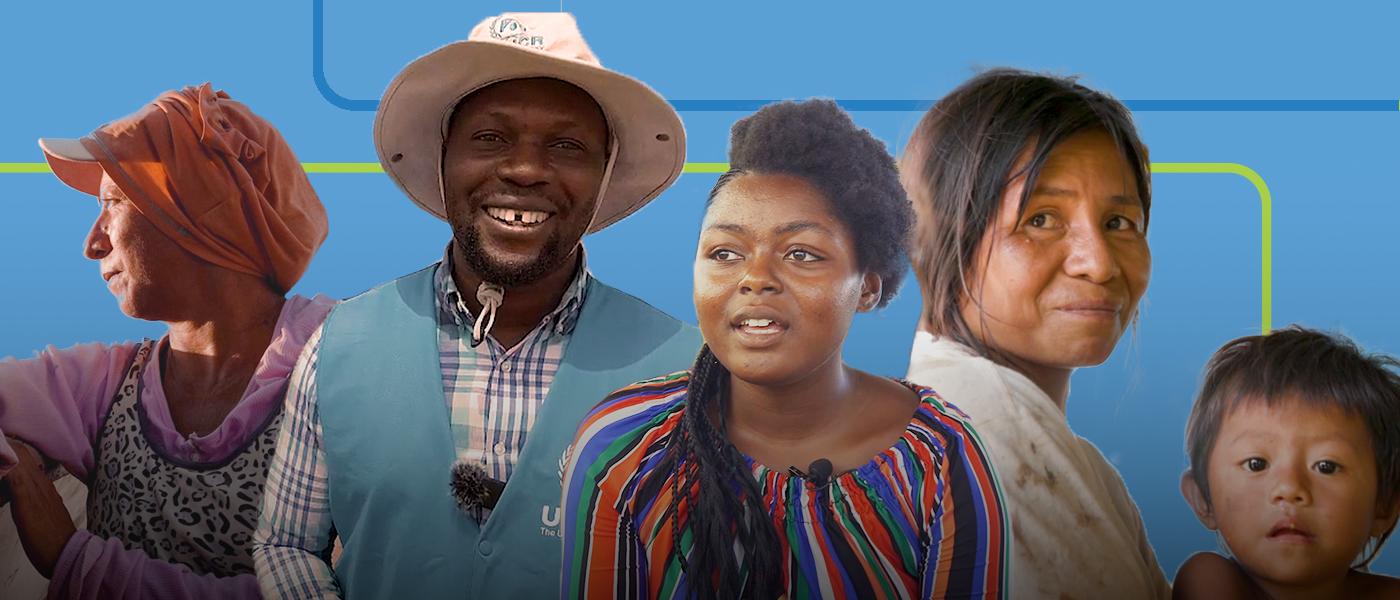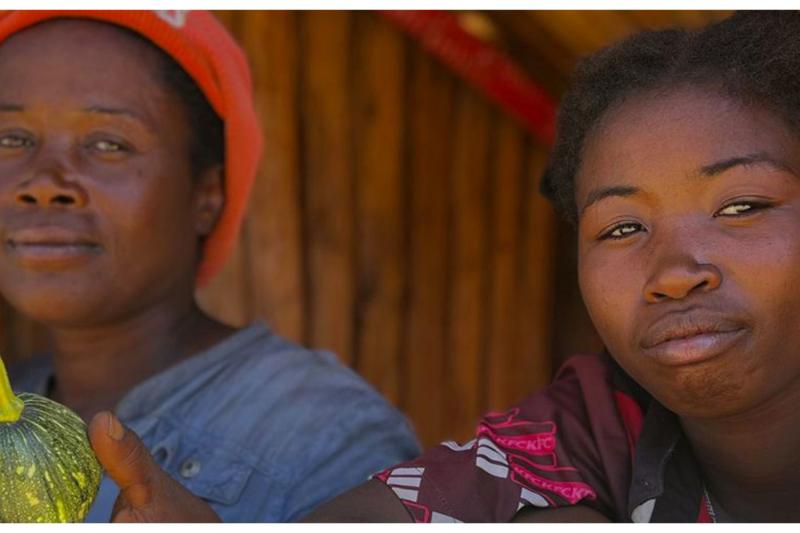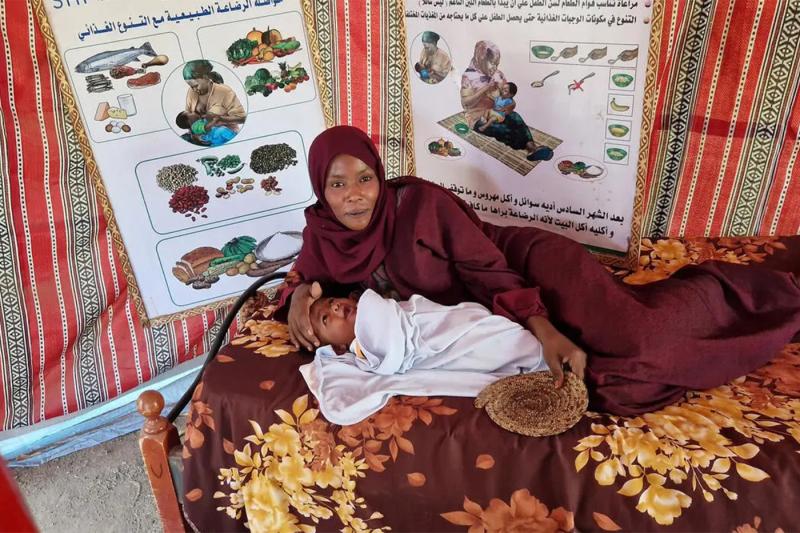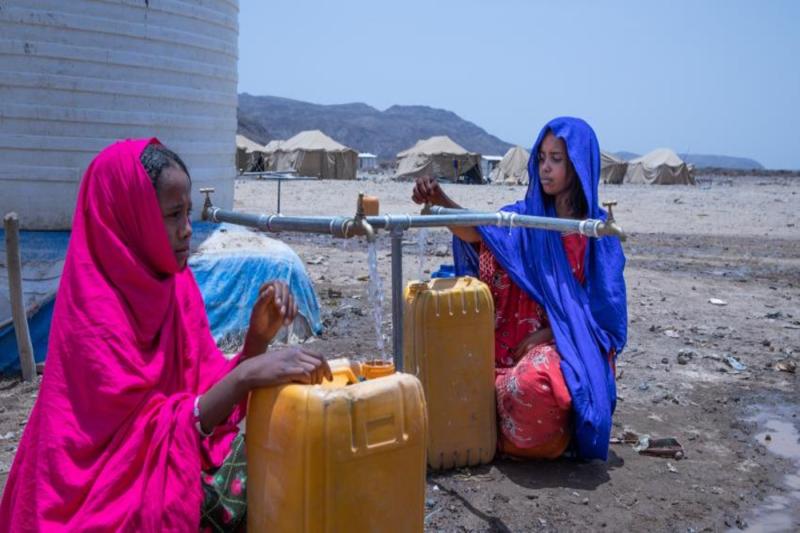
Donors pledge US$419 million to the Central Emergency Response Fund
Donors support Central Emergency Response Fund. Showing global solidarity in the face of rising humanitarian need, donors from forty countries collectively pledged US$419 million to the Central Emergency Response Fund, the global humanitarian fund ‘for all, by all’, at its annual High-level Pledging event on 6 December in New York.
“CERF makes a difference,” UN Secretary-General António Guterres remarked at the pledging event. “I have personally seen that difference. CERF provides support and hope when people need it most.”
With the support of donors, CERF provides time-critical, life-saving humanitarian assistance, in the face of exponentially growing humanitarian needs.
Via holographic video statements, participants heard from people who are living through crisis and who have received help from CERF-funded interventions.
Christelle, from the Democratic Republic of Congo, described how her family fled fighting and were forced to search for food in the forest. A livelihoods programme helped her learn new skills and she hopes to expand her business. “Since acquiring this knowledge, I’ve been selling baskets to get food to eat,” and added, “I’d like to expand my work so I can help other women in the displacement site."
Badshah Miah, from Bangladesh, described how his home was destroyed by floods, and how his family found themselves in a hopeless situation, where “we subsisted on one meal daily." With CERF support, new seeds, fertilizers and supplies helped him re-plant after the disaster. “We are very happy to receive these items. In the future, if there is another disaster, we will be able to store our crops, seeds and important belongings in the storage drum.”
Films made with CERF partners FAO, UNFPA, UNCHR and WFP also showed how major CERF allocations this year have already made a difference: we heard from affected people in Afghanistan, Colombia, DR Congo, Nigeria, Venezuela and Yemen.
Under-Secretary-General for Humanitarian Affairs Martin Griffiths noted that, “CERF protects in crises big and small. It strengthens critical protection services, including child protection, gender-based violence interventions, and targeted support to people with disabilities.”
Powering rapid humanitarian response
When crisis strikes, CERF helps to alleviate the suffering of the world’s most vulnerable people. It is often the first funding source in new or quickly escalating emergencies.
In 2023, for example, CERF provided rapid funds to respond to the crises in Sudan and Gaza. And, immediately after the earthquake in Syria and Türkiye in February, CERF allocated $50 million to support humanitarian assistance, ensuring critical life-saving aid reached affected people without delay. CERF provided a lifeline while other funding sources were still being mobilized.
In February 2023, CERF made its largest-ever allocation for food security and famine prevention, allocating $104 million to avert the risk of famine in eight high-risk countries, including the drought-affected Horn of Africa. In 2023, CERF has disbursed $119 million to support 60 food security projects in 28 countries.
CERF is a critical funding source for the world’s lower profile – but no less devastating – humanitarian crises. Sometimes, it is one of the few sources of money to respond.
This year, CERF allocated a record $271 million to keep life-saving operations running in underfunded crises.
CERF plays an increasingly important role in responding to climate-related humanitarian crises. On average, this accounts for about one-third of the total funds allocated. CERF is the largest global funder in anticipatory action, allocating more than $90 million since 2020, including for floods in Bangladesh and Nepal, drought in Niger, Chad and Burkina Faso, and storms in Fiji and the Philippines.
At COP28 in Dubai, OCHA announced the creation of a dedicated Climate Action Account to further strengthen its role in climate crisis financing. The account allows CERF to receive additional funding in the form of specific climate financing for anticipatory action and response to the impact of climate-related disasters.
Deeper and broader support is needed
The CERF’s annual funding target is $1 billion. Additional funding is anticipated during 2024, and several donors announced that pledges are forthcoming.
Thanking donors, Under-Secretary-General Griffiths added, “Since the inception in 2006, more than 60 Member States have contributed to CERF and have also benefited from its funding. CERF is genuinely the fund of those 60 Member States. It's our fund. It's your fund. It's there for you in your hour of need; it is there for those people who we have been listening to.”
In the context of unprecedented humanitarian need, a fully resourced CERF at US $1 billion, as endorsed by the General Assembly in 2016, is essential to ensure efficient, coordinated help reaches the most people in need.
As Under-Secretary-General Griffiths underscored, “This year, once again, CERF has proven that it is truly the “for all, by all” fund, as envisaged by the General Assembly when it was created back in 2006. It needs to continue to play such a critical role, if it's fully funded.”
Since the Central Emergency Response Fund was established, global funding needs through humanitarian appeals have increased tenfold – from $5.2 billion in 2006 to assist 32 million people to nearly $57 billion in 2023 to help 245 million people in need.
To date, the Fund, which has an annual funding target of $1 billion, has helped hundreds of millions of people with nearly $9 billion in more than 110 countries and territories.
For more information:
Links to film: Addressing acute food insecurity: how CERF is helping
Link to UFE vignettes: Colombia DRC Nigeria Venezuela
CERF Climate Action Account brochure
CERF Climate Action Account animation


